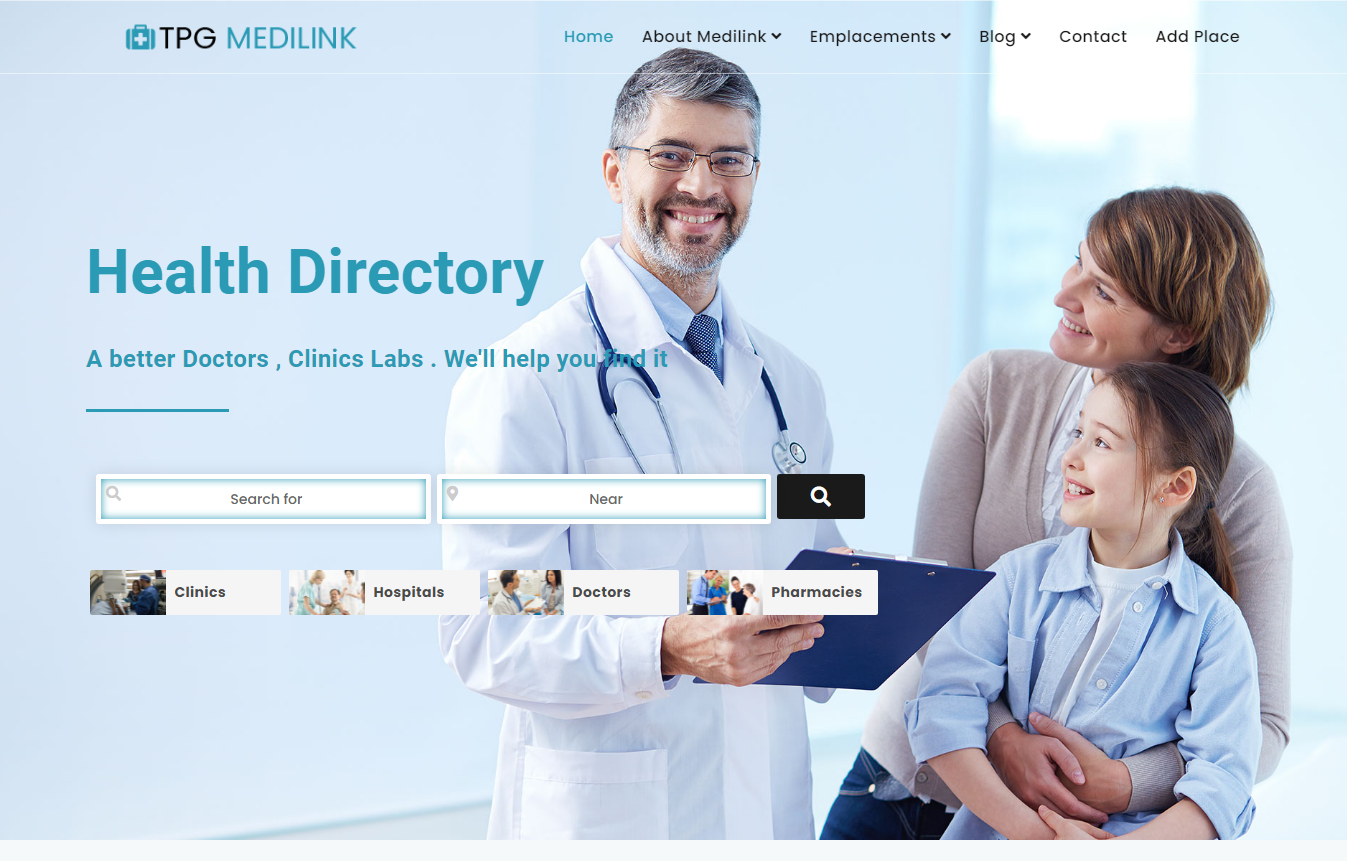Digital marketing success hinges on visibility, engagement, and a resonant digital presence, measured by website traffic, user engagement, conversion rates, and social media metrics. However, achieving this requires consistent website maintenance, a vital but often neglected part of digital marketing. This includes regular updates, security checks, speed optimization, and adherence to the latest web standards, ensuring a smooth, secure, and efficient website performance.
Digital Marketing Success and WordPress Maintenance Impact
Among the various platforms that websites are built on, WordPress stands out for its flexibility, ease of use, and extensive feature set. As the world’s most popular Content Management System (CMS), WordPress powers a significant portion of the web, from small blogs to large corporate websites. However, its popularity also makes it a target for security threats, and its open-source nature means it requires regular updates for optimal performance.
This is where WordPress maintenance services come into play. Specialized services focused on WordPress sites ensure that your website is not just running, but thriving. These services include regular software updates, security monitoring, backup management, performance optimization, and technical support. By entrusting your WordPress site to professionals, you ensure it is always at its best, offering an optimal experience for users and supporting your digital marketing efforts effectively.
What is Digital Marketing Success?
Digital marketing success is a multifaceted concept, encompassing a range of strategies, techniques, and metrics. It’s about leveraging digital channels effectively to promote products, services, and brands to a targeted audience. But how do we define this success in technical terms, and what are the key performance indicators and metrics that matter? Moreover, how does website performance play into this digital equation? Let’s dive in.
Key Performance Indicators and Metrics for Digital Marketing
To gauge the success of digital marketing efforts, various key performance indicators (KPIs) and metrics are used. These include:
- Traffic Metrics: This involves the number of visitors to a website or a specific web page. Key metrics include unique visitors, page views, and the time spent on the page.
- Engagement Metrics: These measure how users interact with digital content. This includes social media likes, shares, comments, email open rates, and click-through rates.
- Conversion Metrics: Perhaps the most crucial, these metrics track how many visitors complete a desired action, such as making a purchase, signing up for a newsletter, or downloading a whitepaper. Conversion rate, cost per conversion, and return on investment (ROI) are critical metrics here.
- SEO Performance: Search engine ranking positions for targeted keywords, organic traffic, and backlink quantity and quality are vital indicators of SEO success.
- Customer Retention Metrics: These measure the effectiveness of digital marketing in retaining customers. Metrics like customer lifetime value (CLV) and repeat purchase rate are essential.
The Role of Website Performance in Digital Marketing Success
Website performance plays a pivotal role in the success of digital marketing efforts. A well-performing website provides a solid foundation for almost all digital marketing activities. Key aspects of website performance include:
- Speed: Website loading time is critical. Faster websites offer a better user experience, reduce bounce rates, and are favored by search engines.
- Usability: A user-friendly website with a clear structure, mobile responsiveness, and intuitive navigation is more likely to engage visitors.
- Content Quality: High-quality, relevant content helps attract and retain visitors, boosting engagement and conversion rates.
- Search Engine Optimization (SEO): A website optimized for search engines enhances visibility and drives organic traffic.
- Security: A secure website gains the trust of visitors and is essential for handling sensitive customer information.
Digital marketing success is not just about implementing various digital strategies but about effectively measuring and optimizing these efforts using specific KPIs and metrics. Central to all these digital marketing endeavors is the performance of the website, which significantly impacts how well these strategies perform. Understanding and optimizing these aspects can lead to achieving greater digital marketing success, driving growth and achieving business objectives in the digital age.
Understanding Website Maintenance: A Key to Optimal Functionality and Performance
Website maintenance is often misconstrued as a one-time task, but it is, in fact, an ongoing process critical for ensuring the smooth functioning and relevance of a website. This article aims to define website maintenance, explore its components, provide a technical overview of common maintenance tasks, and explain how these tasks impact a website’s functionality and performance.
Defining Website Maintenance and Its Components
Website maintenance refers to the regular checking of your website for issues and mistakes while keeping it updated and relevant. This process encompasses a wide range of activities to ensure the website’s stability, health, and continuous performance. The key components of website maintenance include:
- Content Updates: Keeping the website content fresh and relevant, which is vital for both visitors and search engine rankings.
- Software Updates: Regularly updating the website’s CMS, plugins, and scripts to their latest versions to ensure security and functionality.
- Backup Management: Creating regular backups of the website’s data to prevent loss in case of a malfunction or cyber-attack.
- Security Checks: Monitoring the website for security breaches and taking steps to fix vulnerabilities.
- Performance Optimization: Ensuring the website loads quickly and efficiently by optimizing images, scripts, and databases.
- SEO Monitoring and Updating: Regularly updating SEO practices based on evolving search engine algorithms.
- Functionality Testing: Testing website features and functionality to ensure everything works as intended.
- Analytics and Reporting: Reviewing traffic and usage data to understand visitor behavior and make informed decisions.
The Impact of Website Maintenance on User Experience: A Critical Factor in Digital Marketing
A website is often the first point of contact between a business and its potential customers, making its performance and user experience (UX) crucial elements in digital marketing. Regular website maintenance plays a significant role in shaping these aspects. This article will explore how website maintenance affects user experience, its importance in digital marketing, and the impact on site speed, security, and user engagement, supported by relevant statistics and data.
Understanding User Experience and Its Importance in Digital Marketing
User experience (UX) refers to the overall experience of a person using a website, especially in terms of how easy or pleasing it is to use. In digital marketing, UX is a critical factor because it directly influences a visitor’s decision to stay on the site, engage with content, and ultimately convert into a customer. A positive UX leads to higher engagement, increased trust, and better brand perception, all of which are essential for successful digital marketing.
Impact of Regular Maintenance on Site Speed
Website maintenance significantly affects site speed. Slow-loading sites deter visitors, with Google noting a 32% increase in bounce rate as page load time rises from 1 to 3 seconds. Routine maintenance tasks like optimizing images, minifying CSS and JavaScript, and improving server response times enhance site speed. This improvement in speed not only boosts user experience but also benefits search engine rankings, as faster sites are favored in SEO metrics.
The Role of Maintenance in Website Security
Website security, vital in maintenance, involves regular updates and checks to prevent vulnerabilities and cyber attacks, safeguarding user data and building visitor trust. With 85% of online shoppers avoiding insecure sites, as per a GlobalSign survey, security is key to user experience and digital marketing. Regular security protocol maintenance is essential for a safe browsing experience and preserving site reputation and customer trust.
Enhancing User Engagement Through Maintenance
Regular maintenance also affects user engagement. By ensuring that all elements of the website, such as links, forms, and features, are functioning correctly, businesses can provide a smooth user experience. Regularly updating content, fixing broken links, and optimizing for mobile responsiveness keep the website relevant and engaging for visitors. For instance, Adobe found that companies with mobile-optimized sites triple their chances of increasing the mobile conversion rate to 5% or above.
Supporting Data on the Importance of Maintenance
The importance of website maintenance is further highlighted by various statistics:
- According to Google, 53% of mobile users leave a site that takes longer than three seconds to load, emphasizing the need for speed optimization.
- A report by HubSpot revealed that 90% of users left a website because it was badly designed, which can be prevented through regular maintenance and updates.
- Security is a top concern, with Symantec reporting that 1 in 10 URLs is malicious, underscoring the need for continuous security monitoring and updates.
Regular website maintenance is key to a positive user experience and effective digital marketing. It boosts site speed, security, and engagement, enhancing a business’s online impact. Essential for more than just functionality, it strengthens a website as a vital digital marketing asset. Ignoring maintenance risks reduced user satisfaction, lost trust, and lower conversion and retention rates.
WordPress Website Maintenance: A Cornerstone for Digital Success
WordPress, the world’s most popular content management system, powers millions of websites, ranging from small personal blogs to large corporate portals. While WordPress is renowned for its user-friendliness and flexibility, regular maintenance is crucial to harness its full potential. This maintenance is not just a routine check; it’s a vital practice that enhances website performance, security, and functionality. Let’s delve into the specific aspects of WordPress maintenance, its common challenges, and the undeniable benefits it brings, especially in the realm of digital marketing.
Key Aspects of WordPress Maintenance
Regular Updates: WordPress frequently releases updates for its core software, themes, and plugins. These updates are essential for fixing bugs, improving performance, and patching security vulnerabilities.
- Security Measures: With its popularity, WordPress websites often become targets for cyberattacks. Regular security checks, including malware scans, strengthening login procedures, and implementing firewalls, are vital.
- Performance Optimization: A well-maintained WordPress site means optimizing for speed. This involves tasks like caching web pages, optimizing images and databases, and ensuring that themes and plugins are efficient.
- Backup and Recovery: Regular backups are essential for any WordPress site. These backups should be stored securely and be easily restorable to mitigate the risk of data loss.
- SEO Monitoring: Keeping up with the latest SEO practices is crucial for WordPress sites, ensuring they rank well in search engines and attract organic traffic.
Common Challenges in WordPress Maintenance
- Managing Frequent Updates: Keeping up with the frequent updates of WordPress, themes, and plugins can be overwhelming. Automating updates or using managed WordPress hosting can help streamline this process.
- Ensuring Compatibility: Post-update, there’s always a risk of incompatibility between various elements of the site. Regular testing in a staging environment before going live can address this issue.
- Balancing Performance and Functionality: Adding numerous plugins and complex themes can slow down a website. Regular performance checks and keeping the number of plugins to a minimum can help maintain the balance.
- Constant Security Threats: Continuously safeguarding a WordPress site against new security threats requires vigilance. Implementing robust security measures and regular security audits are necessary steps.
Benefits of Regular WordPress Maintenance for Marketing Success
- Enhanced Website Security: Regular maintenance helps in protecting sensitive data, maintaining customer trust, and preventing potential reputational damage.
- Improved User Experience: A well-maintained WordPress site loads faster, is more responsive, and provides a better user experience, all of which are crucial for keeping visitors engaged.
- Higher Search Engine Rankings: By keeping up with the latest SEO practices and ensuring fast loading times, WordPress maintenance can significantly improve search engine rankings, leading to increased visibility and traffic.
- Reduced Downtime: Regular maintenance identifies and resolves potential issues before they escalate, ensuring that the website remains up and running, which is critical for any digital marketing strategy.
- Consistent Brand Image: A smoothly running, up-to-date website reflects positively on a brand, reinforcing its image and messaging in the digital marketplace.
Regular maintenance ensures that WordPress sites remain secure, efficient, and aligned with the latest web standards and marketing strategies. By addressing the common challenges and focusing on key maintenance tasks, businesses can leverage their WordPress sites as powerful tools in their digital marketing arsenal, driving growth, and ensuring sustained success in the digital realm.
Choosing the Right WordPress Maintenance Provider: The Role of WordPress Development Agencies
With the increasing complexity of digital platforms, partnering with a specialized WordPress maintenance service has become crucial for businesses. This section focuses on the key factors to consider when choosing a WordPress maintenance provider and the unique advantages of working with a local WordPress agency in New York.
What to Look for in a WordPress Maintenance Service
When selecting a WordPress maintenance provider, several critical factors come into play:
- Expertise in WordPress: Look for an agency that specializes in WordPress. Their in-depth knowledge of the platform ensures they can handle a wide range of issues and provide customized solutions.
- Comprehensive Service Offering: The right provider should offer a full spectrum of maintenance services, including regular updates, security checks, performance optimization, backup management, and emergency support.
- Proactive Approach to Maintenance: Choose a provider that doesn’t just react to issues but proactively monitors and maintains your site to prevent problems before they occur.
- Strong Communication and Support: Effective communication is key. The maintenance service should provide regular reports and be easily reachable for support and queries.
- Customization and Scalability: Ensure that the provider can tailor their services to your specific needs and can scale their services as your business grows.
- Reputation and Testimonials: Check reviews and testimonials to gauge the provider’s reputation and reliability.
Benefits of Partnering with a Specialized WordPress Development Agency
Working with a specialized WordPress development agency brings several benefits:
- Expert Knowledge: These agencies have a deeper understanding of the WordPress ecosystem, providing insights and solutions that generic maintenance services might miss.
- Tailored Strategies: They can offer customized solutions that align with your business objectives and website requirements.
- Focus on Security: Specialized agencies are well-versed in the latest security threats and best practices, ensuring your site remains secure.
- Efficiency and Reliability: Their expertise in WordPress results in quicker resolution of issues and more reliable website performance.
WordPress Agency New York: Local Solutions for Global Impact
Partnering with a local WordPress agency in New York offers unique advantages:
- Local Market Understanding: A New York-based agency brings valuable insights into the local market, which can be crucial for businesses targeting a New York audience.
- Personalized Service: Local agencies often provide more personalized service, with the opportunity for in-person meetings and a deeper understanding of your business.
- Network and Resources: They may have connections and resources in the local industry that can be beneficial for your digital marketing efforts.
- Time Zone Advantages: Working in the same time zone facilitates smoother communication and quicker responses to your needs.
Choosing the right WordPress maintenance provider is a decision that can significantly influence the success of your online presence. By focusing on expertise, service range, and a proactive approach, and considering the unique benefits of a local agency like those based in New York, businesses can ensure their WordPress website is not just maintained, but optimized for continuous growth and digital marketing success.
- How 2FA Plugins Can Secure Your WordPress Store Without Slowing Down - April 26, 2025
- Top Tips for Designing a Sports E-Commerce Website - February 17, 2025
- Understanding the “gs://yc-thumbnails-raw/undefined.png” Error Message - January 19, 2025







